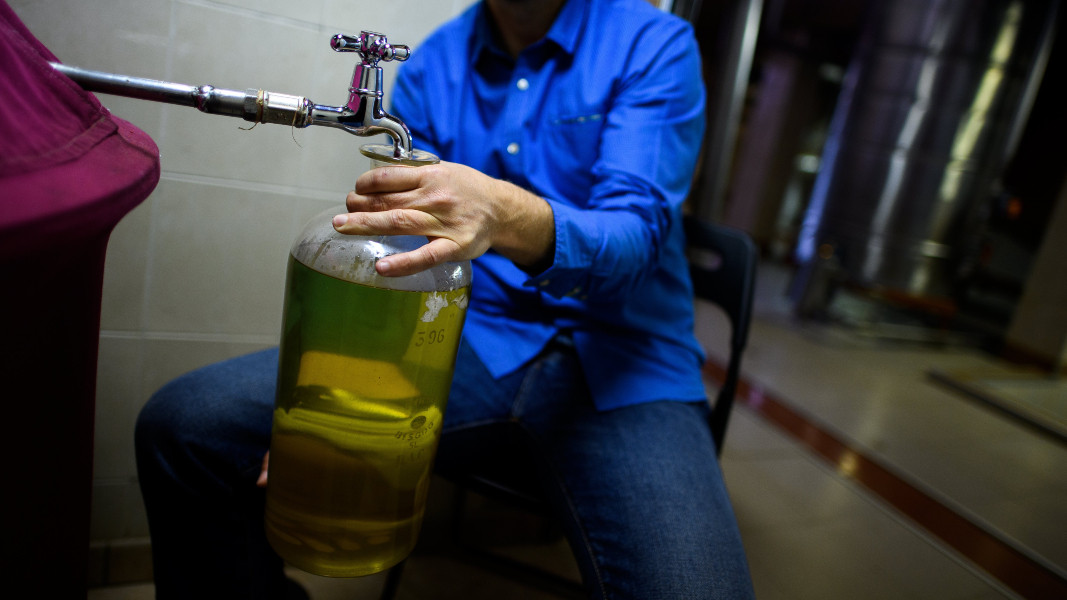 4
4
It is not true that the EU intends to ban essential oils, including rose oils, it becomes clear from the position of the European Commission quoted by the Bulgarian National Radio. The reaction is in connection with reports that haveemerged that essential oils will be subject to European regulation, which will either ban them or oblige manufacturers to put special identification labels on them - bright yellow with a skull and bones.
A few days ago, it became known that rose oil and other essential oils will be classified by the EC not as natural but as chemical products that could be potentially toxic. Bulgaria is a leading global producer of rose oil and lavender oil, products with wide application in the Bulgarian and global industry.
After a series of media publications and comments in the public space, the official position of the European Commission came out. It says that essential oils are already defined as chemical substances and are regulated as such by European legislation, and that they will not be banned. And further, “The Commission does not intend to change this definition, nor to begin requiring analysis of every molecule in essential oils. Overall, the revised rules will help to better identify the hazardous properties of chemical substances and to better manage the associated risks, where necessary."

Could Bulgarian rose oil be "toxic"?
Bulgarian rose oil is a complex natural product that cannot be obtained synthetically. It has rich pharmacological activity, proven by Bulgarian and foreign scientists, we learn from associate professor Ganka Baeva, director of the Institute of Roses, Essential and Medical Crops in the town of Kazanlak. In an interview with Bozhidar Alexandrov from the Hristo Botev Channel of the BNR, she explains what the characteristics of the rose oil produced in Bulgaria are:
"It is obtained viawater-steam distillation. This is a method created hundreds of years ago that is completely ecological and safe for human health and the environment. The production of essential oil cannot be equated with that of chemical substances. So far, at least at the institute, we are not aware of anything harmful to humans in the ingredients of rose oil. We make creams, perfumes and we have not received any complaints. The classification of rose oil and all other essential oils not as a natural but as a chemical product will immediately reflect on both the perfumery and pharmaceutical industries. Restrictions and requirements will be imposed, which will lead to a jump in the cost price and hence to difficulties with the marketability of the products. This will have negative consequences, both for the people and for the industry. "
A few days ago, the Bulgarian MEP Atidzhe Alieva-Veli explained that according to the expected proposal of the EC, essential oils, instead of being considered as substances, as before, will now be classified as ... mixtures.

Is rose oil a mixture?
"I think it cannot be a mixture”,says Prof. Baeva. “It is a complex natural product that contains about 300 ingredients, but we cannot say in detail what they are. We believe that it is not harmful to people and industry."
The prepared changes in the European legislation related to the classification and packaging of substances considered chemical was the reason for the BNR to turn to Todor Dzhikov, Deputy Minister of Agriculture, for a comment:
"In practice, we will express an opinion on what they want to change in the labeling regulation. We want it to only apply to chemically derived oils. And the natural ones, used for thousands of years in medicine and in aromatherapy, and as sedatives, are absolutely harmless. Moreover, there are currently EU regulations that define some of them as food additives, so the regulations themselves will be "in discrepancy with each other" at the European level. It is also clear that we are in a pre-election situation and that some are using this in their pre-election plans. The Bulgarian producers of essential oils, and especially of the rose oil, which is the national symbol of Bulgaria, should remain calm - Bulgaria has clearly and firmly expressed its official position that it wants to keep the current regulation especially for essential oils obtained naturally. such as rose oil, lavender oil, etc.," Deputy Minister Dzhikov points out.

We are moving towards the option of not having a quickly adopted budget for 2025, Lachezar Bogdanov, chief economist from the Institute for Market Economics, told BNR. In presenting the institute's alternative state budget, the..
Bulgaria and India will intensify their cooperation in various sectors of mutual interest. This was discussed at a meeting of the Bulgarian Minister of Economy Petko Nikolov with Ambassador of India to Bulgaria H.E. Sanjay Rana. The two focused..
On October 31, 2024, 10 business leaders in Bulgaria founded the first Bulgarian-Czech Chamber of Commerce in the country. At the Embassy of the Czech Republic in Sofia, in the presence of Martin Dvořák, Minister of European Affairs of the Czech..

+359 2 9336 661
